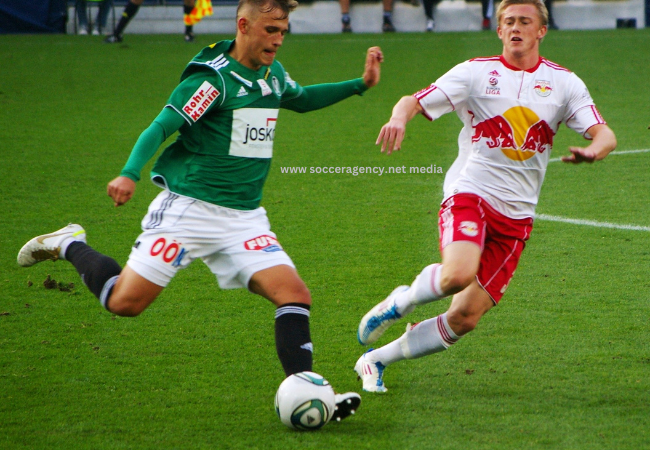In the high-stakes world of professional www socceragency.net media, agencies play a crucial role in representing players, negotiating contracts, and managing careers. However, the modern landscape of soccer agency is not just about behind-the-scenes negotiations; media plays a pivotal role in shaping the careers of athletes and the reputation of agencies. This article delves into the intricate relationship between soccer agencies and media, exploring strategies, challenges, and the future of media in this dynamic field.
Understanding Soccer Agencies
Overview of Soccer Agencies
WWW socceragency.net media serve as the linchpin between players and clubs, handling everything from contract negotiations to marketing deals. Their primary goal is to ensure that their clients receive the best possible opportunities, both financially and professionally.
Role of Soccer Agencies
Agencies not only negotiate player contracts but also manage public relations, endorsements, and career planning. They provide legal and financial advice, helping players navigate the complexities of professional sports.
History and Evolution
The concept of player representation has evolved significantly, from informal arrangements to sophisticated organizations that employ experts in law, finance, and marketing. The rise of media has further transformed the industry, making public perception a critical component of agency work.
The Role of Media in Soccer Agencies
Media’s Influence on Player Representation
Media can significantly impact a player’s market value and public image. Positive media coverage can enhance a player’s brand, while negative press can diminish their reputation and affect contract negotiations.
Media’s Role in Contract Negotiations
Media often serves as a platform for public negotiations, where leaks and rumors can pressure clubs and agents to finalize deals. Strategic media engagement can also help in promoting player transfers and garnering interest from potential suitors.
Key Media Strategies for Soccer Agencies
Media Relations Management
Effective media relations involve building strong relationships with journalists and media outlets. This helps in controlling the narrative around players and ensuring accurate representation in the media.
Social Media Strategy
With the advent of social media, agencies must manage players’ online presence, engaging with fans and promoting the player’s brand. Social media platforms offer a direct line to supporters, making it a crucial tool for image building.
Crisis Management
In times of controversy or crisis, a well-prepared media strategy is essential. This includes issuing statements, holding press conferences, and managing social media backlash to protect the player’s image.
Building a Media Presence
Importance of Media Visibility
Visibility in the media can greatly influence a player’s career trajectory. Consistent and positive media exposure can lead to sponsorship deals and increased fan support.
Strategies for Media Engagement
Engaging with the media involves providing timely information, offering exclusive interviews, and creating compelling storylines around players. This proactive approach helps in maintaining a positive media presence.

Content Creation for Soccer Agencies
Types of Content
Agencies create various types of content, including press releases, video interviews, and social media posts. Each type serves a different purpose, from announcing transfers to celebrating milestones.
Content Distribution Channels
Content is distributed through traditional media outlets, social media platforms, and the agency’s official channels. This multi-platform approach ensures maximum reach and engagement.
Utilizing Multimedia
Incorporating videos, infographics, and photos can enhance storytelling and engage audiences more effectively. Multimedia content is particularly popular on social media, where it can be shared widely.
Digital Marketing for Soccer Agencies
SEO for Soccer Agencies
Search Engine Optimization (SEO) helps agencies improve their online visibility. By optimizing content with relevant keywords, agencies can attract more visitors to their websites and social media pages.
Online Advertising
Paid advertising on platforms like Google and social media can increase visibility and attract potential clients. It is an effective way to target specific demographics and promote events or announcements.
Influencer Partnerships
Collaborating with influencers can amplify a player’s reach. Influencers with a large following can promote players, events, or endorsements, helping to build the player’s brand.
Branding and Image Management
Developing a Personal Brand
Building a personal brand involves creating a consistent image that resonates with fans and sponsors. It includes defining the player’s values, style, and public persona.
Reputation Management
Agencies must manage the public perception of their clients, addressing any negative press and promoting positive stories. Reputation management is crucial for maintaining a player’s marketability.
Leveraging Media for Brand Building
Using media to tell compelling stories about players can enhance their brand. Features, interviews, and behind-the-scenes content can humanize players and endear them to fans.
Navigating Media Relations
Establishing Media Contacts
Building a network of reliable media contacts is essential for effective media engagement. This network can provide valuable insights and help in managing narratives.
Media Training for Agents
Agents need to be adept at handling media interactions. Media training helps agents communicate effectively, answer difficult questions, and present a positive image of their clients.
Effective Communication Strategies
Clear and consistent communication is key to managing media relations. This includes regular updates, timely responses, and transparency in dealings with the media.
Case Studies: Successful Media Campaigns
Case Study 1: A Rising Star
This case study examines how strategic media engagement helped elevate a young player’s profile, resulting in a lucrative transfer deal and increased brand endorsements.
Case Study 2: A Transfer Saga
This case focuses on how a well-managed media strategy navigated a complex transfer situation, maintaining the player’s image and ensuring a favorable outcome.
Lessons Learned
From these case studies, agencies can learn the importance of timing, consistency, and strategic planning in media engagement.
Challenges in www socceragency.net Media
Media Misrepresentation
Misrepresentation or sensationalism can damage a player’s reputation. Agencies must be vigilant in correcting false information and providing accurate narratives.
Navigating Controversy
Controversial situations require careful media management to prevent long-term damage to a player’s image. This includes proactive communication and swift action to address issues.
Balancing Transparency and Privacy
Agencies must strike a balance between being transparent with the media and protecting their client’s privacy. This balance is crucial for maintaining trust with both the player and the public.
Ethical Considerations in Media Strategy
Ethical Media Practices
Agencies should adhere to ethical standards, avoiding manipulation or exploitation of media. This includes honest communication and respect for journalistic integrity.
Avoiding Exploitation
It’s important to avoid exploiting players’ personal lives for media gain. Agencies should focus on professional achievements and positive aspects of the player’s character.
Ensuring Accuracy
Providing accurate and verified information is essential for maintaining credibility. Agencies should fact-check all statements and be transparent about any uncertainties.
Technology and Media in Soccer Agencies
Impact of New Technologies
New technologies like social media analytics and AI are transforming how agencies engage with media. These tools help in understanding audience preferences and tailoring content accordingly.
Use of Analytics
Analytics can provide insights into the effectiveness of media strategies, helping agencies optimize their approach and improve engagement.
Future Trends
The future of media in soccer agencies will likely involve greater integration of virtual and augmented reality, providing fans with immersive experiences and new ways to engage with players.
Legal Aspects of Media in www socceragency.net media
Media Rights and Contracts
Media rights are a significant aspect of player contracts, involving the licensing of image and broadcasting rights. Agencies must navigate these contracts carefully to protect their clients’ interests.
Intellectual Property Issues
Protecting a player’s intellectual property, including their image and brand, is crucial. This involves monitoring unauthorized use and taking legal action when necessary.
Defamation and Libel
Agencies must be aware of defamation and libel laws to protect their clients from false and damaging statements in the media. Legal recourse may be necessary in such cases.
The Future of Media in Soccer Agencies
Emerging Media Platforms
New platforms like TikTok and Twitch are becoming popular in sports media, offering new ways for players to engage with fans and showcase their personalities.
Evolution of Fan Engagement
As media evolves, so do fan engagement strategies. Agencies must stay ahead of trends to keep fans engaged and maintain their clients’ relevance.
Predictions for the Future
The future will likely see more personalized and interactive media experiences, with agencies using data-driven strategies to tailor content to specific audiences.
Conclusion
The intersection of media and soccer agencies is complex and multifaceted, requiring strategic planning and ethical considerations. As technology and media landscapes evolve, agencies must adapt to new challenges and opportunities, leveraging media to enhance player careers and agency reputations. The future promises even greater integration of media in soccer, making it an essential aspect of the agency’s role in the sport.
FAQs
What role do media play in soccer agencies?
Media play a crucial role in shaping the public image of players and influencing contract negotiations. Effective media engagement can enhance a player’s brand and market value.
How do soccer agencies manage media relations?
Agencies manage media relations by building strong relationships with journalists, providing timely information, and engaging in proactive communication strategies.
What are the ethical considerations in media strategy for soccer agencies?
Ethical considerations include avoiding manipulation, ensuring accuracy, respecting player privacy, and maintaining transparency in media communications.
How does technology impact media strategies in soccer agencies?
Technology, such as social media analytics and AI, helps agencies understand audience preferences and tailor their media strategies for better engagement and results.
What are the challenges of media misrepresentation in soccer?
Media misrepresentation can harm a player’s reputation and career. Agencies must be vigilant in correcting false information and managing the narrative effectively.
How can soccer agencies use media to build a player’s brand?
Agencies can use media to highlight a player’s achievements, personality, and values, creating a compelling personal brand that attracts sponsors and fans.




